Tanzania: First Lady of Mozambique impressed by specialised services at Muhimbili National ...
US Centre for the Prevention of Genocide concerned over Mozambique

The United States Centre for the Prevention of Genocide is concerned with the development of conflicts in Mozambique, and its director on Saturday urged the international community to act quickly in local conflicts such as Mozambique to prevent the escalation of violence creating major problems.
“We are concerned that what is now happening in Mozambique” could transform the country “into a Syria tomorrow,” if the international community does not take “early action to avoid an escalation in the conflict”, Cameron Hudson, head of the Simon-Skjødt Centre for the Prevention of Genocide, said. When “violence triggers, the response of the international community is always too slow.”
Hudson was one of the keynote speakers at the Global Forum on Ending Genocide held last Thursday at the Holocaust Memorial Museum in Washington, and, between 2005 and 2009, directed the African affairs section of the US National Security Council.
Hudson spoke to Lusa about the factors in local security issues in places like Mozambique, and how to prevent them becoming larger-scale conflicts.
“From academic research, we know that one of the variables is the fact that societies have already experienced high levels of violence in the past, targeting the civilian population, is the number one indicator that there may be a return to violence in the future,” Hudson told Lusa.
In recent months, Mozambique has seen an escalation of violence, with reports of clashes between the Mozambican National Resistance (Renamo) and the defence and security forces, and mutual accusations of abductions and assassinations on both sides, with attacks attributed by authorities to the armed opposition wing against civilian targets in the centre of the country.
Other factors which experts use to assess the degree of conflict risk include the type of government and its degree of ethnic, religious or tribal diversity.
“We also evaluate how much of the state budget is spent on the military, as well as corruption levels. A country that displays all these indicators, with high levels of social inequality between rich and poor, where wealth is concentrated in a minority elite – all this can indicate a high level of risk,” Hudson said.
Renamo has threatened to seize power in the six provinces where claims victory in the 2014 general elections, and its leader, Afonso Dhlakama, has demanded the investigation of human rights abuses in Mozambique and the alleged death and disappearance of his party’s members and supporters.
In a case that has aroused the condemnation of the international community, dozens of bodies have been found abandoned in the jungle in the centre of the country, and in early March, more than 11,000 Mozambican refugees fled to neighbouring Malawi.
The International Crisis Group has put Mozambique in “conflict risk alert”, but according to Hudson, there is a “wide range” of inexpensive and effective ways of preventing atrocities.
“The earlier we are able to identify signs of a conflict, the more effectively we can act, through development assistance, promotion of political and diplomatic dialogue and training people to build more resilient societies.”
However, preventive action “does not change society overnight,” he warned, and Hudson advocates the creation of early warning systems and local networks to prevent the worst from occurring in Mozambique.
“It is very specific to each context and is a process that must be developed locally,” he explained.
Two decades after the peace agreements in Mozambique, society is still “healing its wounds”, he added.


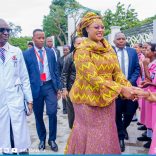
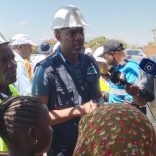
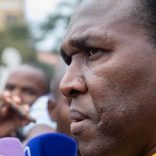
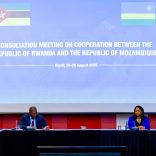
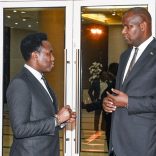





Leave a Reply
Be the First to Comment!
You must be logged in to post a comment.
You must be logged in to post a comment.